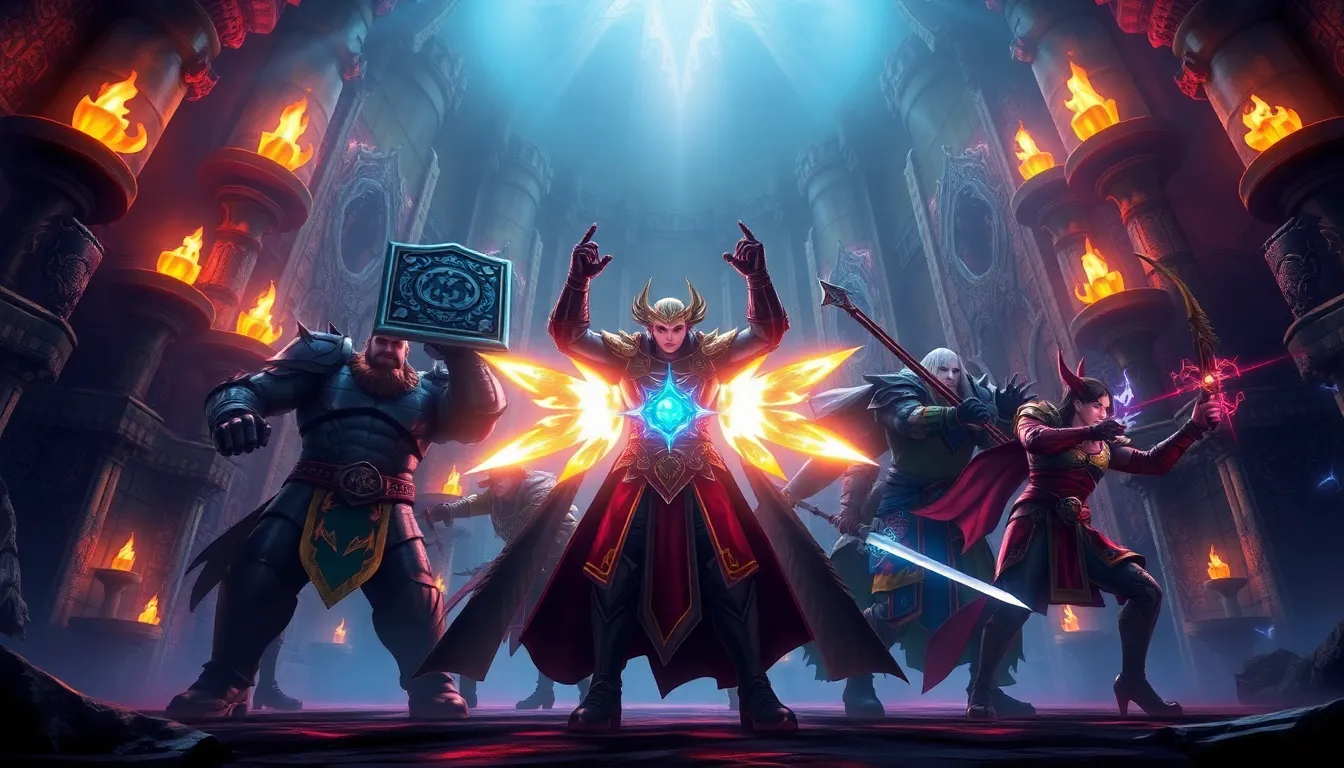When it comes to running raids in your favorite MMORPG, the excitement can be compared to diving headfirst into a ball pit, delightful yet slightly terrifying. Raids are the ultimate test of teamwork and skill, where mistakes can lead to failure faster than you can yell “I need healing.” The right strategies can turn a daunting raid into a victory lap. So, buckle up as we explore everything you need to know to conquer raids with the bravado of a seasoned gamer. Let’s immerse.
Table of Contents
ToggleUnderstanding the Basics of Raids

Raids often serve as the crown jewel of multiplayer online games. They require a group of players to band together, tackle complex challenges, and defeat powerful bosses that are typically far more formidable than ordinary enemies. Understanding the basic mechanics, like health bars, damage types, and enrage timers, is the first step toward raid mastery.
Each raid has its own unique mechanics: some may require specific roles such as tank, healer, or damage dealer. Grasping these fundamentals sets the groundwork. Familiarity with the game’s mechanics can make or break a raid, providing players smooth sailing even in the stormiest battles.
Types of Raids and Their Challenges
Not all raids are created equal: they come in various flavors, each presenting distinct challenges.
- Standard Raids: These are the classic encounters involving multiple boss fights and require coordination. Expect to face intricate mechanics and phases.
- Timed Raids: Here, you fight against the clock. Deadlines add pressure, pushing teams to execute flawlessly.
- Hardmode Raids: For those craving a higher level of difficulty, these raids increase boss health, add new mechanics, and demand perfect execution from the entire team.
With each type comes its set of hurdles, making familiarity crucial. Knowing what to expect allows players to prepare mentally and gear-wise, increasing their chances of a successful outcome.
Strategies for Success in Raids
Victory in raids doesn’t come from sheer luck: it’s about strategic planning.
Team Composition and Roles
A balanced team often spells the difference between triumph and disaster. It’s vital to have diverse roles covered, including tanks to absorb damage, healers to keep the team standing, and damage dealers to dispatch enemies quickly. Understanding how each role interlocks can create a dance of cooperation, essential for tackling the most challenging foes.
Effective Communication and Coordination
Communication is key. Coordinate strategies beforehand, whether through voice chat or in-game messaging. Announcing critical moments, like a boss’s special attack, can save lives and ensure swift success. Establishing a “call-out” system for alerts further enhances group responsiveness when facing mounting threats.
Gear and Loadouts for Raids
When it comes to gear, players should understand that having the right loadout can dramatically influence their performance. Every player should invest time in acquiring gear that complements their role. Tanks should look for equipment that boosts armor, while damage dealers might prioritize critical hit chance.
Also, understanding consumables, like potions or buffs, can give an edge. Some raids may benefit from specific potions to enhance performance. Prepare your gear accordingly, as each raid differs in what works best.
Common Mistakes and How to Avoid Them
Even the most seasoned players make errors that can lead to the downfall of the group. Let’s examine a few common slip-ups and how to dodge them.
- Neglecting Role Responsibilities: Forgetting the role can lead to chaos. Ensure each team member understands their duties, especially during critical phases.
- Lack of Preparation: Jumping into a raid without reviewing strategies or gear can be a recipe for disaster. Take the time beforehand to familiarize with the encounter.
- Poor Communication: Failing to convey important information can result in confusion during the heat of battle. Encourage transparency and responsiveness to maintain cohesion.
Avoiding these common pitfalls often has a profound impact on overall team performance.


